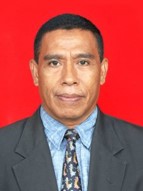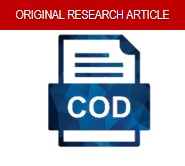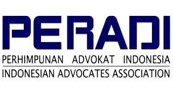Safeguarding Lampung’s Migrant Workers
The Role of Siyasah Tanfidziyyah Syar’iyyah in Islamic Law-Based Protection Policies
DOI:
https://doi.org/10.46924/jihk.v6i2.256Keywords:
Siyasah Tanfidziyyah Syar’iyyah, Islamic Law, Protection, Migrant WorkersAbstract
This study examines the implementation of siyasah tanfidziyyah syar’iyyah in protecting migrant workers from Lampung, with a particular focus on the role of the Lampung Provincial Manpower Office. This concept refers to Islamic law-based policies aimed at achieving justice and welfare. Despite the existence of protective regulations, migrant workers remain vulnerable to exploitation. Using a qualitative approach with a case study method, this research collects data through interviews and documentation analysis. The findings reveal that the Manpower Office has implemented various policies, including counseling programs, agent verification, and cooperation with destination countries. However, significant challenges remain, particularly in monitoring illegal agents and ensuring post-return protection. This study recommends enhancing coordination, expanding training programs, and providing legal assistance to strengthen the protection of migrant workers in accordance with Islamic law principles.
Downloads
References
Journals
Dawi, Klara, Anita Yuliastini, Ivan Wagner, and Raymundus Loin. “Sosialisasi Tentang Hak Atas Pekerjaan Yang Layak Kepada Buruh Migran Di Kota Pontianak.” Jurnal Pengabdian Aceh 2, no. 4 (2022): 234–239. https://jpaceh.org/index.php/pengabdian/article/view/164.
Dewi, Putu Sinta, and Hartana Hartana. “Peran Penting International Labour Organisation Dalam Melindungi Buruh Migran Indonesia Dari Kekerasan.” Jurnal Gender Dan Hak Asasi Manusia 1, no. 1 (2023): 10–17. https://ejournal2.undiksha.ac.id/index.php/JGHAM/article/view/2101.
Febrianti, Nadya Zerlinda, and Wiwik Afifah. “Perlindungan Hukum Terhadap Pekerja Migran Indonesia Yang Mengalami Kekerasan Di Luar Negeri.” Bureaucracy Journal: Indonesia Journal of Law and Social-Political Governance 3, no. 1 (2022): 191–203. https://doi.org/10.53363/bureau.v3i1.174.
Febriyanti, Doris, and Isabella Isabella. “Implementasi Kebijakan Perlindungan Tenaga Kerja Indonesia (TKI) Di Luar Negeri Pada Tahap Pra Penempatan: Studi Kasus TKI Kota Palembang.” Jurnal Pemerintahan Dan Politik 1, no. 2 (2019): 22–29. https://doi.org/10.36982/jpg.v1i2.703.
Fitriyani, Indri, Rahyono Rahyono, and Wiewiek Indriani. “Analisis Pelatihan, Dan Pengembangan Terhadap Peningkatan Kesejahteraan PMI Purna Pada UPT BP2MI Lampung.” Jurnal Jejama Manajemen Malahayati 2, no. 2 (2022): 1–8. https://doi.org/10.33024/jurnal jejama.v2i2.8158.
Hanifah, Ida. “Peran Dan Tanggung Jawab Negara Dalam Perlindungan Hukum Tenaga Kerja Indonesia Yang Bermasalah Di Luar Negeri.” Delegalata: Jurnal Ilmu Hukum 5, no. 1 (2020): 10–23. https://doi.org/10.30596/dll.v5i1.3303.
Junaidi, Muhammad, and Khikmah Khikmah. “Perlindungan Hukum Dan Penempatan Pekerja Migran Indonesia Di Luar Negeri.” Jurnal USM Law Review 7, no. 1 (2024): 490–501. http://dx.doi.org/10.26623/julr.v7i1.8127.
Nasution, Ade Irma Suryani, Rudi Santoso, Maimun Maimun, Agustina Nurhayati, and Rita Zaharah. “Siyasah Tanfiziyyah Syar’iyyah Analysis of The Process of Proposing a Plan for The Use of Foreign Workforce in Central Lampung According to Article 17 Paragraph 2 of Government Regulation Number 34 of 2021 Concerning Use Foreign Workers.” Constitutional Law Society 2, no. 2 (2023): 217–28. https://doi.org/10.36448/cls.v2i2.58.
Nasution, Muhammad Arsad. “Perlindungan Pekerja Menurut Hukum Islam: Analisis Terhadap Al-Qur’an Dan Hadits.” Yurisprudentia: Jurnal Hukum Ekonomi 5, no. 2 (2019): 120–34. https://doi.org/10.24952/yurisprudentia.v5i2.1875.
Pranika, Ranita, Ruslan Abdul Ghofur, Madnasir Madnasir, Abdul Qodir Zaelani, and Muhammad Iqbal Fasa. “Analysis of the Global Muslim Travel Index (GMTI) Muslim-Friendly Tourism in Improving Community Economy Reviewed from An Islamic Economic Perspective.” Jurnal Ilmiah Manajemen, Ekonomi, & Akuntansi 7, no. 3 (2023): 1267–84. https://doi.org/10.31955/mea.v7i3.3535.
Putri, Nasywa Awalia, Atthariq Andradit, Fathia Mahira Ramadhanissa, and Talitha Aqiella Marsanthy. “Hak Tenaga Kerja Indonesia Di Luar Negeri Dan Implementasi Peraturan Perundang-Undangan Dalam Melindunginya.” Causa: Jurnal Hukum Dan Kewarganegaraan 4, no. 12 (2024): 21–30. https://doi.org/10.3783/causa.v4i12.3934.
Salsabilla, Adinda Thalia, and Devanto Shasta Pratomo. “Determinan Migrasi Internasional Tenaga Kerja.” Journal of Development Economic and Social Studies 3, no. 2 (2024): 384–96. https://doi.org/10.21776/jdess.2024.03.2.5.
Skaut, Verawati, and Widodo Triputro. “Pencegahan Pekerja Migran Indonesia (PMI) Ilegal.” Maras: Jurnal Penelitian Multidisiplin 1, no. 1 (2023): 1–11. https://ejournal.lumbungpare.org/index.php/maras/article/view/1.
Widodo, Hartono, and R. Jossi Belgradoputra. “Perlindungan Pekerja Migran Indonesia.” Binamulia 8, no. 1 (2023): 107–116. https://doi.org/10.37893/jbh.v8i1.343.
Zaelani, Abdul Qodir, Hari Sutra Disemadi, Rumawi Rumawi, and Sukron Mazid. “The Company’s Contribution to Overcome the Economic Crisis Due to Covid-19 Pandemic in Indonesia through Corporate Social Responsibility Policy.” Neuro Quantology 20, no. 7 (2022): 747–56. https://doi.org/10.14704/nq.2022.20.7.NQ33096.
Zaharah, Rita, Efa Rodiah Nur, and Rudi Santoso. “Pengaruh Investasi Terhadap Pertumbuhan Dan Pembangunan Ekonomi Dalam Perspektif Ekonomi Islam.” Asas: Jurnal Hukum Ekonomi Syariah 14, no. 2 (2022): 70–80. http://dx.doi.org/10.24042/asas.v14i02.15697.
Thesis
Gita, Felanica. “Tinjauan Fiqh Siyasah Terhadap Prinsip-Prinsip Good Governance: Studi Asosiasi Pemerintahan Desa Seluruh Indonesia Provinsi Lampung.” Universitas Islam Negri Raden Intan Lampung, 2021. https://repository.radenintan.ac.id/15762/.
Salsabilla, Natasya. “Upaya Pemerintah Dalam Merespon Masalah Pekerja Migran Indonesia Di Taiwan.” Universitas Sriwijaya, 2024. http://repository.unsri.ac.id/id/eprint/144746.
Willy, Gunawan. “Perlindungan Tenaga Kerja Dalam Perpu Nomor 2 Tahun 2022 Tentang Cipta Kerja Ditinjau Dari Perspektif Maqashid Syariah.” Universitas Islam Negeri Raden Intan Lampung, 2023. https://repository.radenintan.ac.id/30220/.
Books
Indra, Ghandi Liyorba, Gesit Yudha, Syeh Sarip Hadaiyatullah, Dharmayani Dharmayani, Arif Fikri, Rudi Santoso, Rita Zaharah, et al. Hukum Islam Dan Legislasinya Di Indonesia. Edited by Agus Hermanto and Hendriyadi Hendriyadi. Purbalingga: Penerbit CV. Eureka Media Aksara, 2024.
Iqbal, Muhammad. Fiqh Siyasah: Konstekstualisasi Doktrin Politik Islam. Jakarta: Prenada Media Group, 2014.
———. Fiqh Siyasah: Kontekstualisasi Doktrin Politik. Jakarta: Gaya Media Pratama, 2001.
Nur, Saifudin. Ilmu Fiqih: Suatu Pengantar Komprehensif Kepada Hukum Islam. Bandung: Tafakur, 2016.
Sahir, Syafrida Hafni. Metodologi Penelitian. Sleman: Penerbit KBM Indonesia, 2021.
Web Pages
Jaya, Didik Tri Putra. “Kepala BP2MI Menyebutkan Bahwa PMI Ilegal Asal Lampung Capai 6.450 Orang.” Kupas Tuntas. co, 2024. https://kupastuntas.co/2024/06/11/kepala-bp2mi-sebut-pmi-ilegal-asal-lampung-capai-6450-orang#:~:text=Kepala BP2MI Sebut PMI Ilegal Asal Lampung Capai 6.450 Orang,-Selasa%2C 11 Juni&text=Kepala BP2MI Lampung%2C Gimbar Ombai,Foto: Ist.
Downloads
Published
Issue
Section
License
Copyright (c) 2024 Khana Azizah, Abdul Qodir Zaelaeni, Rudi Santoso

This work is licensed under a Creative Commons Attribution 4.0 International License.
Authors who publish with this journal agree to the following terms:
- Copyright on any article is retained by the author(s).
- The author grants the journal, the right of first publication with the work simultaneously licensed under a Creative Commons Attribution License that allows others to share the work with an acknowledgment of the work’s authorship and initial publication in this journal.
- Authors are able to enter into separate, additional contractual arrangements for the non-exclusive distribution of the journal’s published version of the work (e.g., post it to an institutional repository or publish it in a book), with an acknowledgment of its initial publication in this journal.
- Authors are permitted and encouraged to post their work online (e.g., in institutional repositories or on their website) prior to and during the submission process, as it can lead to productive exchanges, as well as earlier and greater citation of published work.
- The article and any associated published material is distributed under the Creative Commons Attribution 4.0 International License



 Sinta ID:
Sinta ID: 


















